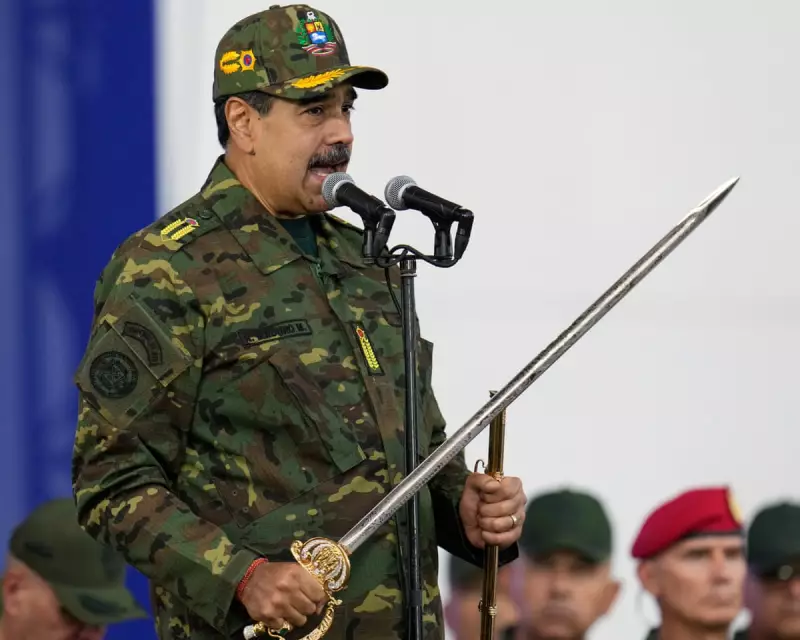
Venezuelan President Nicolás Maduro has dramatically vowed to defend "every inch" of his country against foreign aggression, brandishing a ceremonial sword belonging to independence hero Simón Bolívar during a fiery speech in Caracas. The symbolic gesture comes as former US President Donald Trump intensifies pressure on the South American nation, warning he's prepared to do things "the easy way or the hard way."
Military Buildup in the Caribbean
The United States has significantly increased its military presence in the Caribbean Sea, with officials describing the deployment as part of an anti-drug trafficking operation. Washington has accused Maduro of leading a narcotics organisation dubbed the "Cartel of the Suns," which was recently designated a foreign terrorist organisation, though many experts question the group's existence.
Speaking to reporters aboard Air Force One while travelling to Florida, Trump remained deliberately vague about his ultimate objectives regarding Venezuela. "I'm not going to tell you what the goal is. You should probably know what the goal is," the former president remarked, adding that he "might" consider speaking directly with Maduro.
Maduro's Defiant Response
Appearing before supporters in woodland camouflage fatigues, Maduro invoked Venezuela's revolutionary history during his Tuesday address. He urged his followers to prepare for potential conflict, drawing parallels between the current situation and the struggles faced by Simón Bolívar two centuries earlier.
"We have to be capable of defending every inch of this blessed land from any sort of imperialist threat or aggression, wherever it comes from," Maduro declared to the crowd he described as "the revolutionary people of Caracas." The Venezuelan leader made a solemn pledge, stating: "I swear before our Lord Jesus Christ, that I will give my all for the victory of Venezuela."
Despite the escalating rhetoric, sources close to Maduro's government suggest the Venezuelan leadership views the US military threats as largely symbolic. A source with regular contact with top Venezuelan officials told the Wall Street Journal: "Maduro and most of his cohorts view the US military threats as a bluff. Maduro believes that the only way the US can oust him is by sending troops to Caracas."
Potential Escalation Scenarios
Analysts speculate that Trump's administration might be considering more direct action against Venezuela following more than ten deadly airstrikes targeting suspected drug-smuggling vessels in Caribbean waters. Douglas Farah, a national security consultant and Latin America expert who advised the US government on Venezuela during Trump's first term, expressed concern about potential next steps.
"I think that we're going to start blowing things up. I think we have to do something because there's too big a force there [in the Caribbean] to not do something," Farah stated.
However, Farah also warned of the potential consequences of military action that fails to achieve its objectives. His primary concern is that limited strikes might actually strengthen Maduro's position rather than weaken it. "[If that happens] Maduro will feel empowered. He'll say: 'Yeah, I defeated the United States,'" Farah explained, adding that any chance of the Venezuelan leader leaving power "in some sort of orderly fashion will be gone again for another 10 years."
The situation remains particularly sensitive given Venezuela's status as home to the world's largest proven oil reserves and its position as South America's sixth-largest country. With both leaders adopting increasingly confrontational positions and neither showing signs of backing down, the Caribbean region faces growing uncertainty about potential military confrontation.





